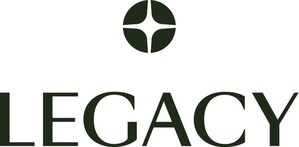Rapid Changes in Hookah Use Found in Legacy Study of 18 - 24 Year-Olds - Tracks With CDC Survey of Youth Use
College attendance, alcohol and cigarette use, and underestimation of hookah-related health risks predict hookah trial
WASHINGTON, April 16, 2015 /PRNewswire-USNewswire/ -- A new Legacy study entitled "Correlates of Hookah Use and Predictors of Hookah Trial in U.S. Young Adults," found that in 2013, almost a quarter of the U.S. young adults aged 18-24 had used hookah – water pipes used to smoke flavored tobacco. Six months later, an alarming eight percent of the young adults who had never used hookah reported trying hookah. A third of those who reported hookah initiation at the six-month follow-up reported that they considered hookah less harmful than cigarettes. The study is the first to examine predictors of hookah use in a national longitudinal sample of young adults and it is being released at the same time as the U.S. Centers for Disease Control and Prevention's National Youth Tobacco Survey showing hookah use almost doubling among high school age youth. It was published in the American Journal of Preventive Medicine.
"The rate of hookah use is a huge new concern, as is the dangerous misperception that hookah is less harmful than cigarettes. In fact, estimates of the toxic smoke exposure during a single hookah session range from 50 to 100 cigarettes," said Robin Koval, CEO and president of Legacy. "There are several factors that have led to hookah's rising popularity; including the widespread but incorrect notion that hookah is less harmful and addictive than cigarettes. It's important for hookah users to understand that these products place smokers at risk for nicotine addiction, and expose them to the same harms that cause the lethal diseases that accompany cigarette smoking."
The study found that college attendees, marijuana, alcohol and tobacco users, and those who perceived hookah as the same or less harmful than cigarettes were likely to have tried hookah. "Appealing ways to smoke tobacco, like hookah and cigars, are increasingly popular in young adults and may be undermining the gains we have made in reducing youth cigarette use," said Andrea Villanti, Director for Regulatory Science and Policy at the Schroeder Institute at Legacy, and Lead Author on this study. "Until recently, the uptake of hookah in young people has been flying under the radar. There is an urgent need to develop effective tobacco prevention and cessation interventions for young adults in step with the changing tobacco landscape."
The study is part of a unique ongoing Legacy-sponsored longitudinal survey that observes participants aged 18-34 years every six months. For this study 1,555 participants aged 18-24 were surveyed in July 2013 and 74 percent (1,150) were surveyed again 6 months later. The data were weighted to offset non-response bias and produce nationally representative estimates.
The 2009 Family Smoking Prevention and Tobacco Control Act granted the U.S. Food and Drug Administration (FDA) authority to immediately regulate cigarettes, smokeless tobacco, and roll your own tobacco products, but jurisdiction was not automatically extended to hookah or cigars, including flavored cigars. Last year, the FDA proposed further regulations to bring more tobacco products, including hookah and cigars, under its jurisdiction, and it is Legacy's hope that the agency works swiftly to regulate and reduce youth access to these products. The emergence of hookah bars near college towns and the ease of purchasing hookah tobacco and paraphernalia can lead to greater tobacco initiation among young people.
To read an abstract of the study, click here.
Watch this video featuring Dr. Thomas Eissenberg, Co-director, Center for the Study of Tobacco Products on the nicotine content and the health effects of hookah use.
Legacy
Legacy envisions an America where tobacco is a thing of the past, where all youth and young adults reject tobacco use. Legacy's proven-effective and nationally recognized public education programs include truth®, the national youth smoking prevention campaign that has been cited as contributing to significant declines in youth smoking; EX®, an innovative public health program designed to speak to smokers in their own language and change the way they approach quitting; and research initiatives exploring the causes, consequences and approaches to reducing tobacco use. Located in Washington, D.C., the foundation was created as a result of the November 1998 Master Settlement Agreement (MSA) reached between attorneys general from 46 states, five U.S. territories and the tobacco industry. To learn more about Legacy's life-saving programs, visit www.LegacyForHealth.org.
Follow us on Twitter at @legacyforhealth and on Facebook at www.Facebook.com/Legacy.
SOURCE Legacy
Related Links
http://www.LegacyForHealth.org
WANT YOUR COMPANY'S NEWS FEATURED ON PRNEWSWIRE.COM?
Newsrooms &
Influencers
Digital Media
Outlets
Journalists
Opted In





Share this article